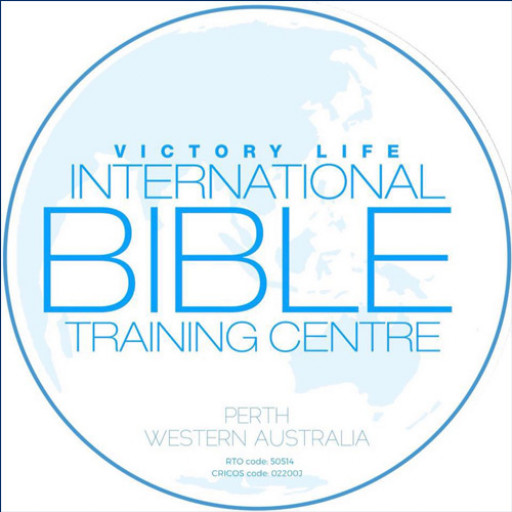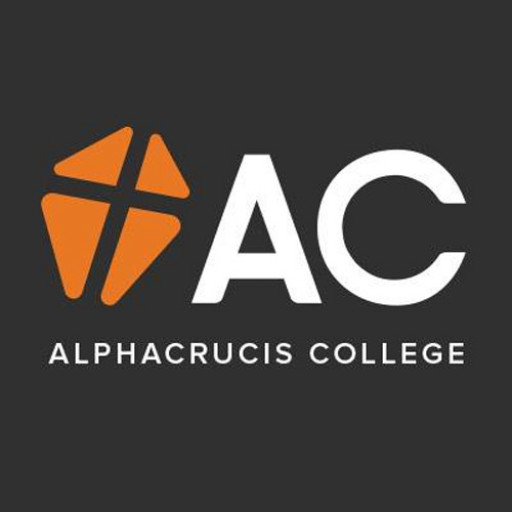Programme Title: Bachelor of Biblical Languages
Degree Level: Undergraduate
Duration: 3 years full-time
Overview: The Bachelor of Biblical Languages at the University of Divinity is a comprehensive undergraduate program designed to equip students with a deep understanding of the original languages of the Bible, including Hebrew, Aramaic, and Greek. This rigorous programme provides students with both linguistic proficiency and contextual knowledge, enabling them to engage with biblical texts in their original form. Throughout the course, students will develop critical reading skills, an appreciation for biblical exegesis, and an understanding of the historical and cultural contexts that shape biblical narratives. The programme is suitable for students interested in theology, biblical studies, religious education, or pursuing advanced research in biblical languages and related fields.
Curriculum: The curriculum combines core language courses with specialized biblical studies modules. Beginning with foundational courses in Hebrew and Greek, students gradually build their vocabulary and grammatical skills. Advanced courses delve into biblical exegesis, textual criticism, and translation techniques. In addition to language mastery, students explore biblical history, archaeology, and theology, fostering a well-rounded understanding of the biblical texts within their historical settings. The programme also offers practical sessions in translating biblical manuscripts and participating in research seminars to enhance interpretive skills.
Learning Outcomes: Graduates of this programme will be able to read and interpret biblical texts in their original languages, contribute to scholarly discussions, and support religious or academic communities through informed biblical scholarship. They will gain skills in critical analysis, textual criticism, and biblical exegesis, enabling them to serve as biblical educators, researchers, or religious leaders. The programme emphasizes an integrated approach, connecting linguistic proficiency with theological reflection and historical understanding.
Career Opportunities: Alumni of the Bachelor of Biblical Languages are well-prepared for careers in academia, religious institutions, ministry, or publishing. They may pursue further postgraduate studies, such as a Master of Divinity or a PhD in Biblical Studies, to advance their expertise. The programme’s focus on language proficiency and biblical understanding makes graduates valuable assets in theological education, biblical research, and pastoral ministries.
Facilities and Support: Students benefit from access to extensive library resources, digital biblical language tools, and ongoing academic support from experienced scholars. The University of Divinity’s collaborative learning environment fosters intellectual growth and professional development, preparing students to contribute meaningfully to scholarly and faith communities globally.
Admission Requirements: Applicants typically need an Australian Year 12 qualification (or equivalent) with suitable academic results or relevant prior learning experience. International students and those with prior qualifications in related fields are encouraged to apply.
Join the Bachelor of Biblical Languages at the University of Divinity and embark on a scholarly journey into the roots of biblical texts. Develop your linguistic skills, deepen your theological understanding, and prepare for a meaningful career in biblical studies and related fields.
Bachelor of Biblical Languages program at the University of Divinity offers students an in-depth study of the foundational languages of the Bible—Hebrew, Aramaic, and Greek. This program is designed to equip students with advanced linguistic skills necessary for biblical exegesis, theological research, and academic careers in biblical studies. Over the course of the program, students will engage with original biblical texts, learning to read, translate, and interpret them within their historical, cultural, and theological contexts. The curriculum encompasses comprehensive language instruction, including grammar, syntax, and vocabulary for each language, combined with modules on biblical history, archaeology, and exegesis to deepen understanding of the biblical narrative and its transmission through history.
Students will have the opportunity to explore classical and contemporary interpretations of biblical texts, developing critical thinking and analytical skills vital for scholarly work. The program emphasizes both academic rigor and spiritual formation, encouraging students to reflect on the significance of biblical languages in faith and religious practice. Practical training involves reading and translating passages from the Hebrew Bible, the New Testament in Greek, and Aramaic texts, fostering proficiency that prepares graduates for careers in ministry, academia, translation, or further postgraduate research. The program also includes seminars, workshops, and collaborations with experts in biblical languages and related fields, ensuring students receive a holistic and well-supported learning experience.
Graduates of the Bachelor of Biblical Languages will be equipped to engage deeply with biblical texts, contribute to theological scholarship, and support various religious and educational communities. With a focus on both linguistic mastery and biblical understanding, this program aims to nurture scholars and practitioners dedicated to exploring the biblical underpinnings of faith, tradition, and intellectual inquiry.
Admissions requirements for the Bachelor of Biblical Languages typically include completion of secondary education or equivalent qualification, with emphasis on strong academic performance in relevant subjects such as English, Ancient Languages, and Humanities. Applicants may need to submit official academic transcripts demonstrating prior academic achievement, along with a personal statement outlining their interest in biblical studies and language proficiency. Some programs require standardized test scores, such as the SAT or ACT, although this varies by institution. Proficiency in one or more biblical or ancient languages, such as Hebrew or Greek, may be advantageous but is not always mandatory; in such cases, introductory language courses are often available for incoming students. Applicants whose first language is not English may need to provide evidence of English language proficiency through tests like IELTS or TOEFL, with minimum score requirements generally specified by the university. The university may also consider prior learning or work experience relevant to biblical studies on a case-by-case basis during the admissions process. Additionally, applicants might need to provide references from teachers or academic advisors who can attest to their suitability for rigorous theological and linguistic coursework. It is recommended that prospective students review specific entry requirements on the university’s official website or contact the admissions office directly to obtain the most current and detailed information. Enrolment also depends on meeting any visa or residency requirements for international students, where applicable. Overall, applicants are encouraged to demonstrate a genuine interest in biblical languages and theology, and to prepare supporting documentation that showcases their academic readiness and motivation for advanced study in this field.
The Bachelor of Biblical Languages program at the University of Divinity offers a range of financing options for prospective students to support their academic pursuits. Tuition fees are determined annually and are designed to be competitive within the higher education sector. The university provides detailed information about fees on its official website, including costs for international and domestic students, as well as potential additional charges for textbooks and materials. Students are encouraged to explore various funding sources to assist with their studies.
Financial aid opportunities include government-sponsored loans and grants, scholarships awarded based on academic merit or financial need, and university-specific bursaries. Scholarships are competitive and may cover partial or full tuition fees; applicants are advised to submit their applications by specified deadlines. The university also offers work opportunities on campus that can provide financial support, including part-time positions in administrative offices or library services, which are typically available to enrolled students.
Students can also explore external funding options, such as community sponsored scholarships, religious organizations, and private foundations that support theological and biblical studies. The university's financial aid office provides guidance and support throughout the application process, helping students to identify appropriate funding sources and complete necessary paperwork.
Payment plans are available to allow students to spread out tuition payments over the academic year, making it more manageable to finance their studies. Additionally, some programs may qualify for governmental support programs, depending on the student’s country of residence and eligibility criteria.
International students should be aware of additional costs, such as visa processing fees, health insurance, and travel expenses. The university offers resources and advice to help international students understand the total cost of attendance and plan accordingly.
Overall, the University of Divinity strives to make Biblical Languages studies accessible through comprehensive financial support mechanisms, fostering an environment where students can focus on their academic and spiritual development without undue financial burden.
The Biblical Languages program at the University of Divinity offers students a comprehensive study of biblical languages, primarily focusing on Hebrew, Greek, and Aramaic. Designed for students pursuing theological, biblical, or religious studies, this program provides in-depth linguistic training aimed at enabling advanced biblical exegesis and interpretation. The curriculum encompasses courses in biblical grammar, syntax, vocabulary, and translation techniques, emphasizing the historical and cultural contexts of the biblical texts. Students will engage with original manuscripts and learn to interpret scriptures with a nuanced understanding of the languages in which they were originally written. The program aims to foster critical thinking and textual analysis skills essential for scholarly biblical research, pastoral work, or further academic study. Typically, the program includes core courses on the historical development of biblical languages, as well as elective seminars on specialized topics like Pauline Greek, Hebrew poetry, or Aramaic texts. Students are encouraged to participate in seminars and workshops led by internationally recognized scholars in biblical languages, which enhances their learning experience. The program also emphasizes the use of digital tools and resources for language learning and text analysis. Graduates of the Biblical Languages program are well-equipped to undertake detailed exegesis and contribute to academic discourse in biblical studies. The program is suitable for students who wish to deepen their understanding of biblical texts, enhance their theological studies, or prepare for careers in academia, ministry, or religious education. As part of the University of Divinity’s commitment to fostering theological scholarship, the program combines traditional language instruction with contemporary research methods, ensuring graduates are prepared for the complexities of modern biblical studies. The program typically takes between one and two years of full-time study, depending on the student's previous qualifications and chosen course load. It is available both as a standalone qualification and as part of a broader Master’s or Doctoral degree pathway in biblical studies. Overall, the Biblical Languages program at the University of Divinity offers a rigorous and engaging pathway for students dedicated to the scholarly exploration of biblical texts and their original languages.









